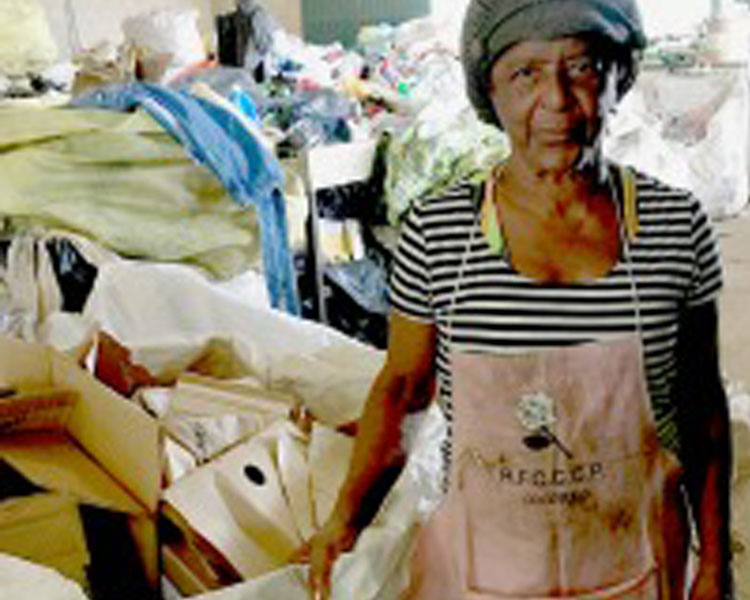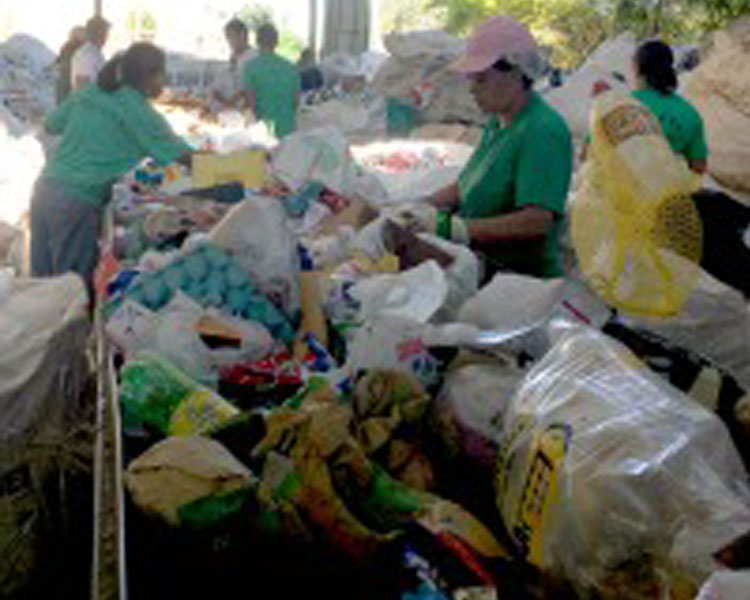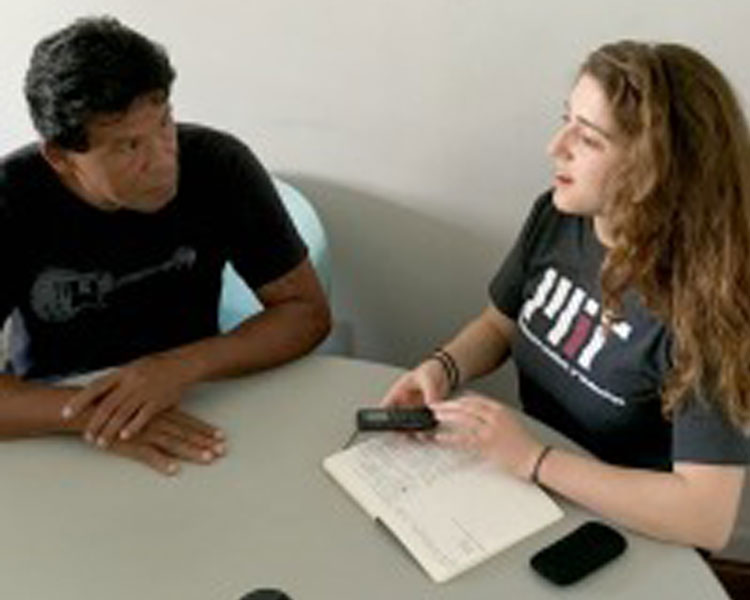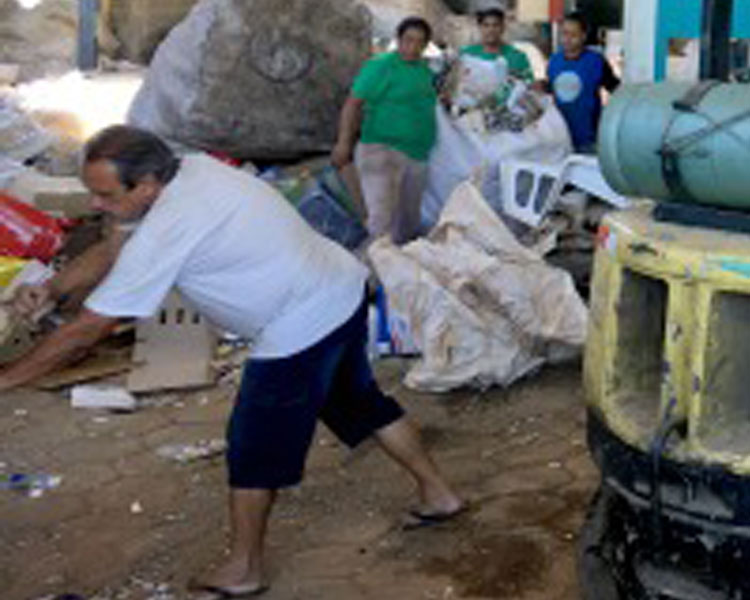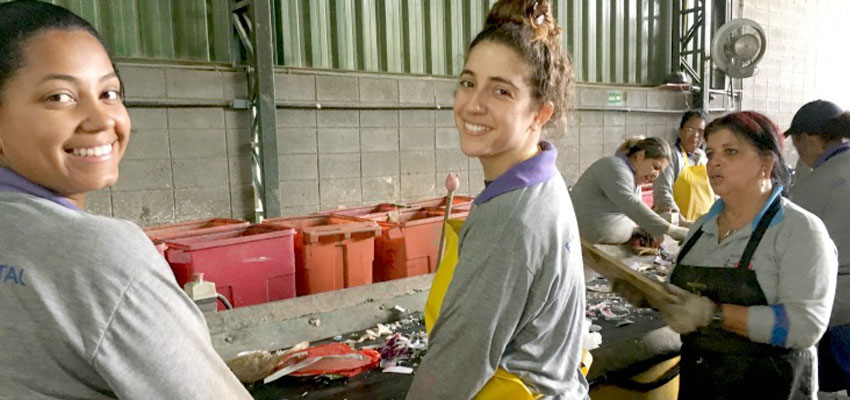
For three weeks in January during MIT’s Independent Activities Period (IAP) I contributed to an assessment of the viability of a mobile application (app) to increase wastepicker earnings in Danone’s Novo Ciclo recycling cooperatives. To conduct the assessment, I met with wastepickers from eight different Novo Ciclo cooperatives in five cities around southeast Brazil, engaging them in conversation and interviews to understand how they manage waste collection, segregation, and access to markets. The research trip was part of an initiative launched by D-Lab’s Practical Impact Alliance (PIA) Inclusive Recycling Working Group, Danone, and BoP Inc.
I received support for the research trip from MIT’s Priscilla King Gray Public Service Center and the staff in Danone’s local offices. In addition to organizing my transportation and visits to the cooperatives, the Danone team arranged and accompanied me in my many meetings at the cooperatives. They also coordinated and accompanied me in meetings with the presidents of the South-Southeast, RedeSol, and CataVale cooperative networks, and with the Novo Ciclo Program partners Avina and Nenuca Institute for Sustainable Development (INSEA).
Novo Ciclo focuses on capacity building and general support for wastepicker cooperatives, which have a particularly strong history in Brazil. As in many places around the world, wastepickers in Brazil are key contributors to municipal solid waste management, collecting, separating, and recycling valuable materials. The goal of Inclusive recycling initiatives is for wastepickers to earn livelihood income and be recognized for the important environmental, public health, and economic benefits they provide municipalities. (Wastepickers globally continue to struggle for adequate compensation and acknowledgement of their work.)
By organizing into autonomous, jointly-managed businesses and associations, wastepickers have begun to address the challenges they face, improving incomes and providing shared benefits for members; speaking out for policy change; and fighting social stigma, to legitimize wastepickers’ work. A particular goal of Novo Ciclo is to strengthen regional networks of cooperatives, the idea being that once wastepickers unite they will have bargaining power with industry and government representatives.
Even so, the wastepickers are not yet adequately compensated for the work they do. Therefore Novo Ciclo is committed to creating an app to further increase wastepicker earnings. One of the two functionalities currently being considered would facilitate information sharing with regard to quantity and location of material in the network cooperatives, enabling them to virtually aggregate and sell material directly to transformative industry and manufacturers (larger amounts of material receive a greater price per kilo). Currently, most cooperatives are forced to sell to middlemen and do not receive the full value of the material they collect.
Prior to my visit to Brazil, I worked with MIT engineering student Becky Bell in D-Lab’s semester-long course, D-Lab: Waste, to complete a survey of existing waste-related apps around the world. What we discovered is that apps have various functionalities, including real-time location tracking of wastepickers or waste collection facilities, display of market value of recyclable materials, and organization of data on quantities of material collected. One overwhelming takeaway of our research was that an app is most successful if its functions correspond directly to the needs of particular wastepicker communities. With a co-design process, in which users work together with app developers to articulate and address their biggest challenges, individuals are more likely to use the resulting technology.
Moving forward, the PIA team intends to use a co-design process to design the app, empowering wastepickers to shape the end product to best serve the diverse assets and needs of their cooperatives and networks.
Indeed, the research I conducted in January revealed that an app that facilitates the cooperative networks’ exchange of information has the best potential to make a big difference in their power to communicate and sell material directly to end buyers at a higher price, as well as to increase transparency around market value of materials.
I am thankful for the patience and time of the many individuals with whom I have collaborated on this research, especially D-Lab PIA, Danone Brazil, BoP, and INSEA. With their support, I am eager to advance this important work in the coming months.
